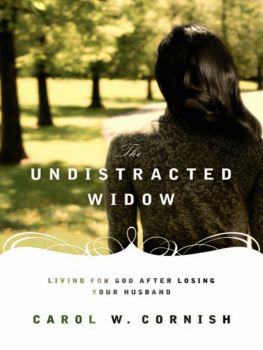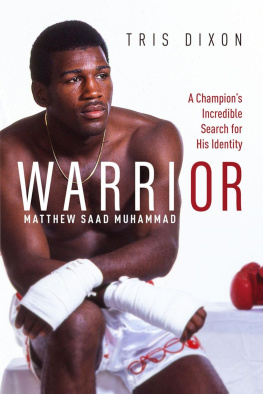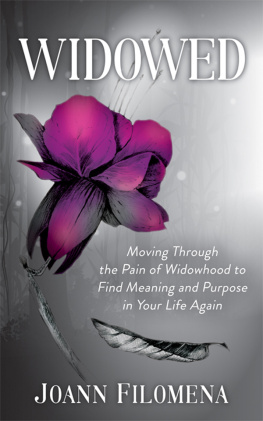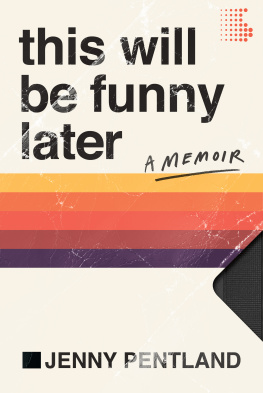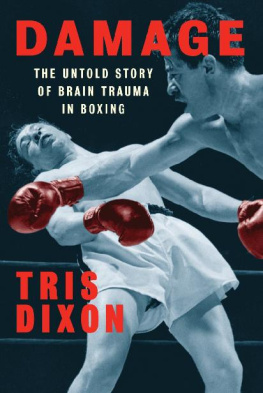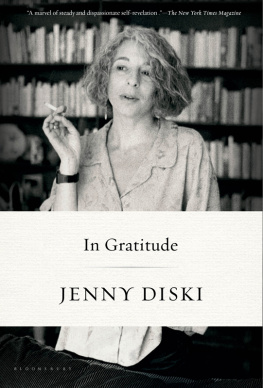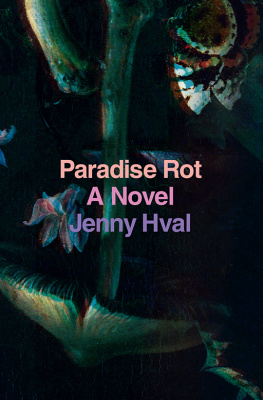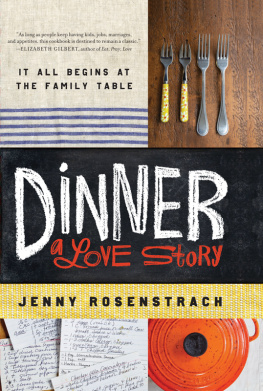Praise for The Good Widow
Katz captures sudden widowhood in all of its life-shattering, disorientating truth, honestly and vulnerably chronicling the fight that the grieving must wage to settle into this new identity no one ever asked for.
Leslie Gray Streeter, author of Black Widow: A Sad-Funny Journey Through Grief for People Who Normally Avoid Books with Words Like Journey in the Title
In this beautifully written memoir, Katz captures the experience of loss and grief in a deeply touching and vulnerable way. Katz does not only focus on the grief experience but also, perhaps drawing on her psychology expertise, teaches the reader so much about what it means to be in, and then look for again, a healthy relationship through courage and honesty.
Joanne Davila, PhD, professor of psychology and author of The Thinking Girls Guide to the Right Guy: How Knowing Yourself Can Help You Navigate Dating, Hookups, and Love
Jennifer Katz is a psychology professor who has written a wonderful, thoughtful book. I was moved by her account of her personal experiences after her husband had died, as well as her interactions with her children. Her memoir provides perspectives about love, loss, and hope.
Margaret Matlin, PhD, Distinguished Teaching Professor of Psychology Emerita and author of The Psychology of Women
In her emotionally raw and unfailingly honest memoir of widowhood, Katz provides a portrait of something even bigger than grief: a beautiful love story that lives on in her and her two children.
Mary Mapes
In this moving and deeply personal narrative chronicling her transition into widowhood, Katz brings us along with her on her amazing journey of self-rediscovery. Part personal narrative and part survival guide for anyone experiencing the transformative loss of one dearly beloved, The Good Widow is filled with wit and wisdom, grief and celebration. Savor this book. You will gain a new perspective on loss, love, marriage, widowhood, parenthood, and just being human.
Catherine Johnson Adams, PhD, coauthor of Love of Freedom: Black Women in Colonial and Revolutionary New England
As a counselor who specializes in trauma and as a person who has endured multiple losses, I hoped reading this book might be educational and cathartic. I devoured it in two days! It was just what my heart and soul needed. Im excited to share this amazing story with others.
Emily G Tyre, MEd, Military and Family Life Counselor
Katz demonstrates our human capacity for love, hope, and acceptance as she describes cultivating connections with herself and others, even after experiencing heartbreaking loss.
Tacianna Indonvia, PhD, Counseling Psychologist
Katz offers a deeply personal, beautifully written account of her journey to find meaning during a time of anguish and uncertainty. Amidst heartbreak and confusion, she stands up and moves forward by finding hidden strength cultivated by enduring love.
Erika Vertigan, MS, Social Worker
Sudden, tragic loss is a gut punch from which it seems impossible to recover. Katz describes with tenderness, depth, and wit the work that grief requires. She fights the impulse to contract with sadness and ultimately expands with love and hope.
Hillary McShea
The Good Widow

Copyright 2021 Jennifer Katz
All rights reserved. No part of this publication may be reproduced, distributed, or transmitted in any form or by any means, including photocopying, recording, digital scanning, or other electronic or mechanical methods, without the prior written permission of the publisher, except in the case of brief quotations embodied in critical reviews and certain other noncommercial uses permitted by copyright law. For permission requests, please address She Writes Press.
Published 2021
Printed in the United States of America
Print ISBN: 978-1-64742-149-6
E-ISBN: 978-1-64742-150-2
Library of Congress Control Number: 2021904335
For information, address:
She Writes Press
1569 Solano Ave #546
Berkeley, CA 94707
She Writes Press is a division of SparkPoint Studio, LLC.
All company and/or product names may be trade names, logos, trademarks, and/or registered trademarks and are the property of their respective owners.
Names and identifying characteristics have been changed to protect the privacy of certain individuals.
For Tristram, Jonah, and Maddymy loves, my forever family
Contents
PREFACE
G rief is unforgiving.
At times, grief ambushes the bereavedpulling us back into the past. At other times, we willingly go back in time to connect with memories of those weve lost. We gaze at old photos, murmuring appreciation for the bright smiles they preserve. We talk about our loved ones, reliving the milestones, telling stories of holidays and happiness, of hospitals and horror. Along with pain and despair, we feel gratitude for the too-few precious moments we once shared together. We yearn for the past, a time when our loved ones were within reach. Without them, the world is different. The future is different. We are different.
We move forward slowly, tentatively, haltingly. As we begin to find our way from what once was to what now is, fresh pain blooms at unexpected moments. Without our loved ones, someday now means something else entirely. We mourn for what has been lost and for what mightve been.
Losing Tristram was a shock. I was forty-five years old when my beloved husband died suddenly at age fifty-seven. A cancer survivor, Tris did all he could to remain healthy. He kept a strict sleep schedule. He ate mostly fruits and vegetables. On the morning of his heart attack, hed just returned home from the gym. His internet browser revealed that hed searched heart attack symptoms mayo clinic. We werent together while this was happening. I was at a coffee shop chatting with a friend whod just told me that she was pregnant. As we sipped our lattes, Tris texted from home to let me know hed called 911. I missed that final text, laughing and distracted by the news of my friends impending motherhood.
Tris was dying... and then he was dead. We didnt get to say goodbye. He was on his own. There were the EMTs in the ambulance and the staff in the emergency room, but being with strangers isnt the same as being with the people who love you. I wasnt there to care for him, to hold his hand. I wasnt there to remind him how much we adored him. Was he afraid? Was he in pain? Theres no way to know. Our time together had ended. The time wed had wasnt nearly enough.
This incredible loss pulled me into a world full of grief and mourning, regret and confusion, disorientation and groundlessness. The Good Widow was borne of my attempts to make sense of what I learned in the eighteen months after my husbands unexpected death. The rawest moments of emotional complexitywhich led to major shifts in my identity, roles, and relationshipsare captured in this collection of personal essays.
In the first few months after Tris died, I felt numb. Denial hit hard. My initial attempts at processing this profound life change involved reading. Desperate for information, no genre was off-limits: memoir, fiction, self-help, and professional guides for clinicians like me. I became intent on understanding what had just happened. I hoped to forecast what to expect, both for me and for our family. I had no idea how to be a widow and no idea how to parent our bereaved children. When their dad died, my stepson, Jonah, was twenty-six years old and our daughter, Maddy, was fifteen.
Next page

